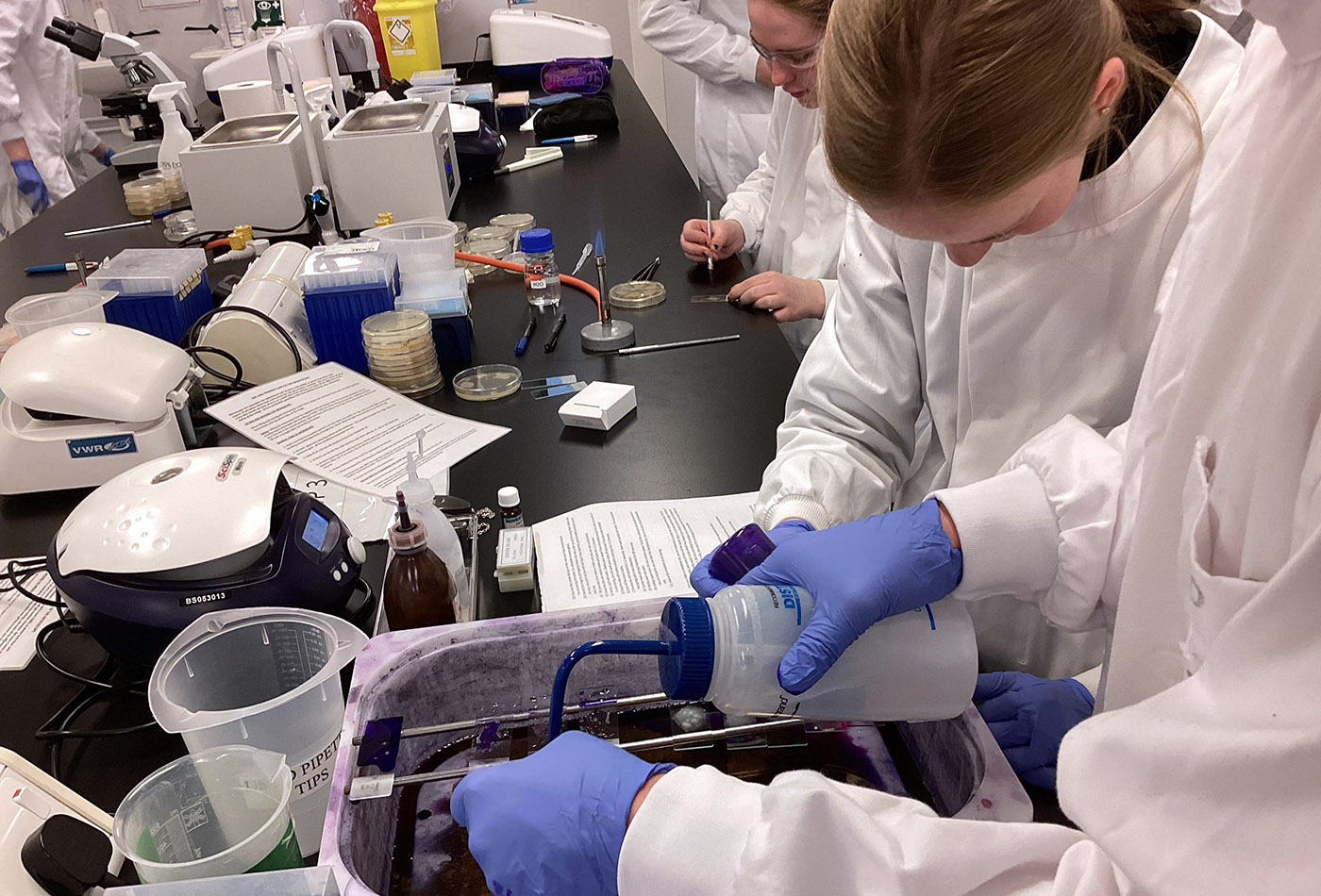Top tips for 1st year Biological Sciences

by Abigail, from Edinburgh, studying Biological Sciences / 2nd year
Welcome!
Thinking of studying Biological Sciences at Edinburgh University and want to know what to expect from your first year? We’ve got you covered!
Note: While this has been true for my experience of first year it may be slightly different when you join!
Last year, the first year curriculum was updated. In each semester, you take two compulsory subjects plus one elective. The compulsory courses cover aspects from all twelve Honours years specialisations, which you choose for third and fourth year.
As long as you pass the four compulsory courses in first year and the three in second year, every specialisation is open to you! So, have some fun, choose come courses that are new and exciting!
1.) Flipped learning
Last year, my first year timetable included interactive sessions, which replaced the traditional style of lectures.
Students watch pre-recorded lectures and take notes on the material in advance of the interactive session, and the lecturer reviews the material with questions and examples.
Students are encouraged to discuss with their peers and apply their learning to class questions using websites such as Top Hat, Mentimeter or Wooclap.
The key learning is often put into context in the laboratory investigations.
Workshops focus on important social issues in science, as well as academic writing and scientific research. This style of teaching is designed to increase understanding.
Top tip – make sure you’re prepared for your classes and collaborate with your classmates.
2.) Contact your teaching team
Your lecturers and academics will often have a slot for drop-ins during their office hours. You can use this time if you have a question about the course, a piece of coursework, or just need some support – they are always happy to help!
They are also happy to chat about anything that you are interested in and help you think about what specialisations you are enjoying.
You can also contact your Student Adviser and your Academic Cohort Leads.
If your academic cohort runs weekly social hours, go along and chat to your classmates or Cohort Leads.
Don’t be afraid to pass on your feedback – with the new curriculum, course organisers are eager to know what is working and what is not.
Top tip – reach out to your academic support team for anything and share your opinions.
3.) Engage with the portfolio
Part of your coursework includes a reflective portfolio. This includes writing weekly reflections on your learning in your courses and your skills development.
This is really important for writing CVs and job and internship applications.
The aim is to highlight your ability to recognise and apply your strengths, as well as identifying and actively improving your skills.
Include some experiences from your personal and social lives, too.
Top tip – quality, not quantity!
4.) Learn your lab skills
Your labs will focus on the topics from your interactive sessions, but don’t be put off by the complex biology and context!
You will be performing a lot of new lab techniques, learning health and safety skills, and using new equipment.
Numeracy for biologists will be covered in the lectures.
You will be working in pairs or groups – communicate with your peers and help each other out!
Top tip – focus on understanding the lab techniques and the basic biology and the importance of group work in the lab
5.) Be social
There is a big focus on groupwork in the labs and workshops.
This is really important for your understanding – two pairs of eyes are better than one!
This way of learning, especially in the labs and coding workshops, is much more efficient
You might also make some new friends, which prepares you for the workplace and making professional connections
Top tip – don’t be afraid to ask for help or initiate a conversation with your groupmates.

Molymod Building in workshops
Want to find out more?




How does passing the compulsory courses in the first and second years impact your choice of specialisation in later years? Regards, Magister